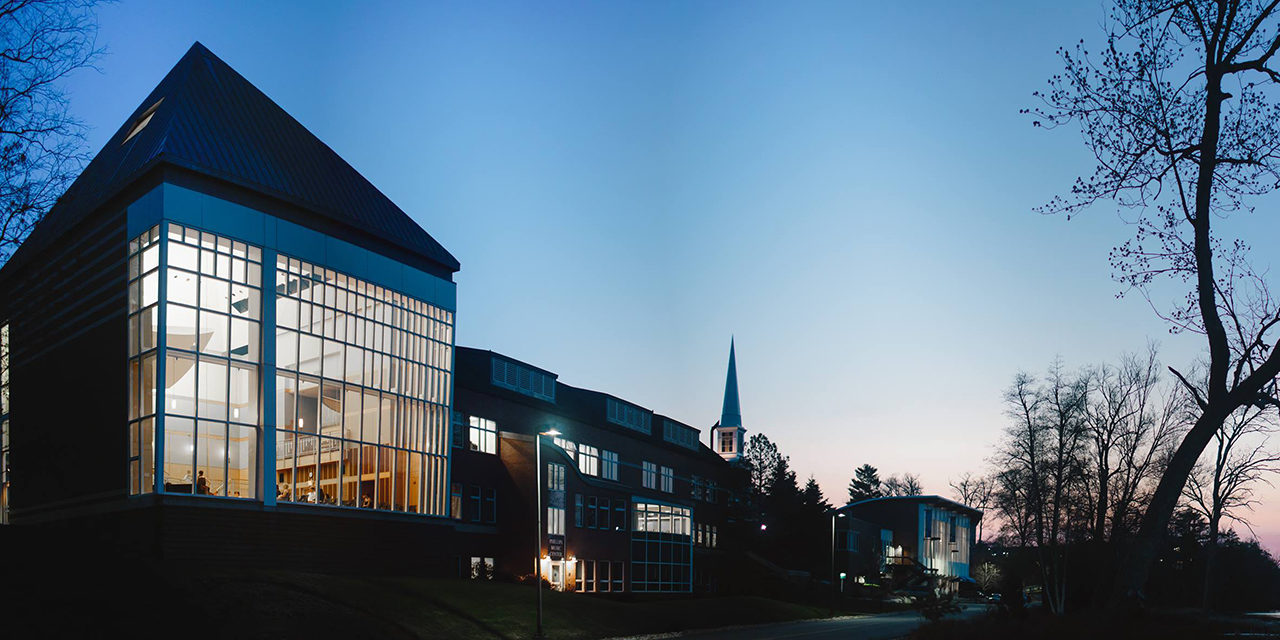The Massachusetts Supreme Court ruled that Professor Margaret DeWeese-Boyd, who taught in Gordon College’s Department of Sociology and Social Work, was not employed as a minister, but as a Christian teacher and scholar at a religious institution. DeWeese-Boyd had filed an employment discrimination case against the Christian school, and the court’s ruling means her lawsuit can go forward.
In 2016, DeWeese-Boyd applied for a full professorship at Gordon College, and the faculty senate unanimously recommended her for the promotion. The school provost, Janel Curry, and its president, Michael Lindsay, “decided not to forward that recommendation to the board of trustees, citing a lack of scholarly productivity, professionalism, responsiveness, and engagement,” the court said.
DeWeese-Boyd filed a complaint, saying she was discriminated against because of “her protected activity opposing Gordon College’s discriminatory anti-LGBTQ+ policies and practices, her advocacy on behalf of LGBTQ+ individuals at Gordon College, and/or her gender.”
Her lawyers also argued that Gordon College was not a religious institution, but “a liberal arts college that identifies as having a Christian character” and that DeWeese-Boyd was a “social work professor, not a minister.”
The school’s mission statement says, “Gordon College strives to graduate men and women distinguished by intellectual maturity and Christian character, committed to lives of service and prepared for leadership worldwide.” The non-denominational Christian school, in Wenham, Massachusetts, was founded in 1889 and has 1,507 undergraduate and 350 postgraduate students.
Gordon College contended that the school was indeed a religious institution, as an earlier court ruling had decided, and because of this, the “ministerial exception” applied to the school, preventing the state from interfering with employment decisions.
In 2012, the Supreme Court decided a case involving a ministerial exception for schools in nondiscrimination lawsuits, Hosanna-Tabor Evangelical Lutheran School and Church v. EEOC (Hosanna-Tabor). The case involved a terminated teacher from a religious school in Michigan. The justices unanimously held the Michigan teacher was a “minister” and the school was therefore shielded from discrimination claims.
Gordon College’s brief quoted from the Supreme Court’s decision, saying the exception “‘protects a religious group’s right to shape its own faith and mission through its appointments,’ and thus it shields a religious institution’s ‘internal governance’ from government interference.”
Gordon College also cited the 2020 Supreme Court decision in Our Lady of Guadalupe School v. Morrisey-Berru (Our Lady of Guadalupe), which affirmed the right of religious schools to hire and fire teachers without being subject to employment discrimination claims.
The college’s brief said there was abundant evidence “showing that Plaintiff educated and formed the students Gordon College entrusted to her, including integrating the evangelical Christian faith into all aspects of her teaching and scholarship and guiding students in their pursuit of a life infused by evangelical Christian faith, such that her claims fall under the ministerial exception pursuant to Our Lady of Guadalupe.”
DeWeese-Boyd argued that unlike the employees in those other two cases, she was not a ministerial employee, even though the college “added a sentence to its Handbook in October 2016 stating: ‘In the Gordon College context, faculty members are both educators and ministers to our students.’”
“Faculty members expressed concerns that the language did not reflect how professors view their role at Gordon College, was inaccurate and/or misleading, and was being added to try to take advantage of the ministerial exception to defend against discrimination claims,” she contended.
The Massachusetts Supreme Court noted the “potential conflict” between state non-discrimination laws and the ministerial exception, saying the exception could “eclipse, and thereby eliminate, civil law protection against discrimination within a religious institution” but that not allowing religious institutions the exception “could allow civil authorities to interfere with who is chosen to propagate religious doctrine,” a violation of the First Amendment.
The court said, “Unfortunately, the parameters of the exception — that is to say, who is covered by the ministerial exception — remain somewhat unclear.”
Ultimately, the court differentiated between the school’s requirement that DeWeese-Boyd “integrate the Christian faith into her teaching, scholarship, and advising” was different from providing “religious instruction and guidance,” which it said was the issue in Hosanna-Tabor and Our Lady of Guadalupe.
The court said that DeWeese-Boyd “was not ordained or commissioned; she was not held out as a minister and did not view herself as a minister; and she was not required to undergo formal religious training, pray with her students, participate in or lead religious services, take her students to chapel services, or teach a religious curriculum.”
Related articles:
Catholic High School and Archdiocese Sued by Former Counselor
Important Religious Hiring Rights Case Argued at Supreme Court
Supreme Court Accepts Two Major Cases on Religious Hiring Rights of Faith-Based Schools
Supreme Court Affirms Religious Schools’ Right to Hire and Fire Teachers
Photo from Facebook






